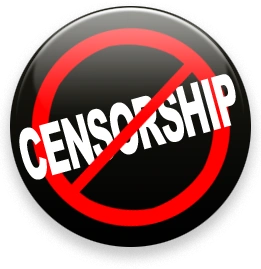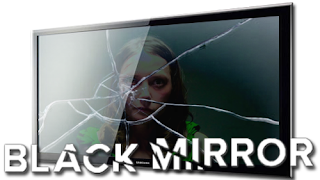Critical Perspectives (Theory) | Independence of The Media
We will be examining the implications of 'Freedom' within the british media.
 Mary Whitehouse - Mediawatch UK
Mary Whitehouse - Mediawatch UK
Censorship - BBFC
Is it important for the media to be independant?
What even does that question mean - is anything we read or watch REALLY free from opinion and conjecture?
Is it REALLY possible, or even DESIRABLE to have a network of media platforms which are 'FREE'?
...and if so, what is the price of that FREEDOM and who does that benefit and disadvantage?
Freedom of Speech - How far does it go? Should ethical lines be drawn between science and religion? Constitutional rights are a burden on the US at this point.
As soon as you stop people from speaking, you stop people from learning and prevent opportunities for debates and general dialogue.
"Danger - Television Can Be Bad For Your Moral Health!"
Ever since the early days of photography and film, people have viewed the visual media as potentially 'dangerous' to viewer's morals.
The Written word has also been subject to moral scrutiny - obscenity is, relatively speaking, a modern invention.
During the industrial revolution in Britain (late 1800's) such notions become particularly widespread.
Case Study: Lady Chatterley's Lover
Lady Chatterley's Lover was first published in 1928 and almost immediately banned.
Caused outrage because of its graphic descriptions of sex.
It became a test case for the 1959 Obscene Publications Act. It stated that publishers could escape conviction if they could prove the literary merit of the work.
In the opening address for the prosecution, Mervyn Griffith-Jones famously asked,
The jury decided that it was, finding Penguin Books not guilty of publishing an obscene article.
The verdict led to greater freedom to publish explicit material. Look at Fifty Shades as a novel series.
Mary Whitehouse Vs TV
With the advent of TV came a new voice for censorship.
Mary Whitehouse - formed the 'National Viewers and Listeners Association' (now called mediawatch-uk) in 1965.
She had the BBC firmly in her sights - even Doctor Who did not escape her criticism claiming it:
"Contains some of the sickest, most horrible material" and was "teatime brutality for tots."
She campaigned against what she perceived as the broadcast media's negative influence on moral standards.
21st Century - MEDIA WATCH UK
The National Viewers and Listeners Association is now known as Mediawatch-UK.
"For Family Values in the Media" (Harkens back to Maggie Thatcher's comments of Family Values...)
They believe that;
"Whether it is increasingly sexualised images, access to violent and addictive gaming, the non-existence of a watershed in an on-demand world or inappropriate bullying through mobile phones and social media; the media's influence is damaging society, and its effects are particularly profound upon children." - MediaWatch UK
MediaWatch UK campaigns for socially responsible media and against content which is potentially harmful.
What do they do?
Lobby government and campaign against violent, sexually explicit and obscene material in the media.
Initiate and stimulate debate on the effects of television, computer games and the internet.
Educate in media literacy, offering information and advice on how to respond to, and protect children from, potentially harmful material.
Media Watch - Stated Achievements and Aims:
- Legislation which made images of child pornography illegal.
- Encourages people to talk and think about the effects of violent entertainment and pornography on society.
- Regularly called upon for comment by the media.
- Much of their current focus is online content and they created the website 'safeonline.org.uk' in response to a government consultation on the subject of child safety online.
OFCOM - Regulating The Media;
OFCOM (the Office of Communications) is the government-approved regulatory and competition authority for the broadcasting, telecommunications and postal industries of the United Kingdom.
Stated Regulations;
- Transmissions should not include anything which offends against good taste or decency or is likely to encourage or incite to crime or to lead to disorder or to be offensive to public feeling.
- Licenses should take note of the guidance contained in Section 1 of the ITC Programme Code, in particular particular that relating to the use of bad language and bad taste in humour.
- In accordance with the ITC's Family Viewing Policy, normally no editorial material which is unsuitable for children should be advertising transmitted before 9:00pm. Separate rules apply to advertising.
Censorship and Film; Some Cinema History:
In terms of the cinema, the Hollywood Production Code - 1930s is an interesting case study in moving image censorship.
In 1922 The Hays Office was set up to police Hollywood. If filmed in a bedroom, a man and woman had to have one foot each on the floor in order to prevent any kind of unwanted sexual attention.
During the 1930's the Hollywood Production Code's basic premise was that:
"Hollywood did not have the same kind of freedom accorded book authors and Broadway playwrights to produce artistic works. Reformers feared that screening the 'modernism' that pervaded contemporary literature [through adapting it] would be far more corruptive on the mass audience of moviegoers that it was on 'readers'."
Conception Vs Perception
Is the image the creator has in mind the exact interpretation that everyone else would have, probably not.
BBFC - 1960s - Changing Times?
The BBFC's role has been one of constant change and amendment.
For example - after the successful defence in 1960 of D.H. Lawrence's novel Lady Chatterley's Lover, John Trevelyan, as Secretary to the Board, responded to the new spirit of liberalism by stating:
"The British Board of Film Censors cannot assume responsibility for the guardianship of public morality."
However, Michael Powell's 'Peeping Tom' was described by Trevelyan as 'morbid concentration of fear'.
Case Study - 1990's - Trainspotting
- Prior to it's release in 1995, Trainspotting was submitted for classification at the BBFC where the strong language, sexual images and violence were factors which contributed to the 18 certificate it was awarded.
- However, it was the depiction of the use of drugs which was to cause the most contention in its certification.
- For general release at the cinema examiners felt the depiction of drug use warranted the 18 rating.
- Examiners were more mindful of potential representation of under-age sex with Kelly (a school girl in the film) would have upon the general public, this was dismissed after they discovered the actress was in fact of age.
- Legislation warned that the video version of the film would become instructional when used at home.
- Examiners were particularly concerned about the influence it might have upon younger adults (the film contained positive references to the effects of Heroin)
- 3 cuts were recommended including the removal of 'shots of a needle piercing the skin, blood being visible from a needle wound and the needle inside the body'.
Changing Times - 2002
- In 2002 it was re-submitted for uncut certification at an 18 certificate.
- By this time examiners felt that 'the arguments about fetishisation or glamorisation of needles and drug use [were] somewhat dated'.
- Views had changed within the BBFC and were mirrored by the views of the experts they consulted.
- Experts felt that it was unlikely the video would be used instructionally nor that it would in any way adversely influence previous of current drug users.
BBFC in 21st Century
In recent times the BBFC has sought to guage public opinion in formulating new classification guidelines.
Major outcomes - depiction of drugs and drugs use of the cause of greatest concern to parents, as was the issue of violence in the lower classification categories. Use of bad language on screen provoked a range of responses. Portrayal of sexual activity has significantly less impact that previously.
So is censorship really a good thing?
There are those that argue censorship of any kind is a bad thing.
The index on censorship is Britain's "leading organization promoting freedom of expression".
Discussion Points Worth Thinking About
Do we need someone to be moral custodian of the viewing public?
Should the BBFC decide what is acceptable or not?
If something is fiction does it matter what is represented?
How influential is fiction in film upon it's audience and their subsequent behavior?

One of the interesting points I find when thinking about these points is that there is almost a sense of anti-censorship and shock-tactics going on right now, especially within social media streams. Many people now believe the best way to educate people on issues they may not care about is to show them explicit or undesirable content by sharing various posts.
An example of this would be videos of animal abuse, beatings and murders being published and shared around social media streams such as Facebook and Twitter. So much so that they have both had to introduce a content-filter warning to prompt users before viewing said "potentially offensive" content.
 Mary Whitehouse - Mediawatch UK
Mary Whitehouse - Mediawatch UKCensorship - BBFC
Is it important for the media to be independant?
What even does that question mean - is anything we read or watch REALLY free from opinion and conjecture?
Is it REALLY possible, or even DESIRABLE to have a network of media platforms which are 'FREE'?
...and if so, what is the price of that FREEDOM and who does that benefit and disadvantage?
Freedom of Speech - How far does it go? Should ethical lines be drawn between science and religion? Constitutional rights are a burden on the US at this point.
As soon as you stop people from speaking, you stop people from learning and prevent opportunities for debates and general dialogue.
"Danger - Television Can Be Bad For Your Moral Health!"
Ever since the early days of photography and film, people have viewed the visual media as potentially 'dangerous' to viewer's morals.
The Written word has also been subject to moral scrutiny - obscenity is, relatively speaking, a modern invention.
During the industrial revolution in Britain (late 1800's) such notions become particularly widespread.
Case Study: Lady Chatterley's Lover
Lady Chatterley's Lover was first published in 1928 and almost immediately banned.
Caused outrage because of its graphic descriptions of sex.
It became a test case for the 1959 Obscene Publications Act. It stated that publishers could escape conviction if they could prove the literary merit of the work.
In the opening address for the prosecution, Mervyn Griffith-Jones famously asked,
The jury decided that it was, finding Penguin Books not guilty of publishing an obscene article.
The verdict led to greater freedom to publish explicit material. Look at Fifty Shades as a novel series.
Mary Whitehouse Vs TV
With the advent of TV came a new voice for censorship.
Mary Whitehouse - formed the 'National Viewers and Listeners Association' (now called mediawatch-uk) in 1965.
She had the BBC firmly in her sights - even Doctor Who did not escape her criticism claiming it:
"Contains some of the sickest, most horrible material" and was "teatime brutality for tots."
She campaigned against what she perceived as the broadcast media's negative influence on moral standards.
21st Century - MEDIA WATCH UK
The National Viewers and Listeners Association is now known as Mediawatch-UK.
"For Family Values in the Media" (Harkens back to Maggie Thatcher's comments of Family Values...)
They believe that;
"Whether it is increasingly sexualised images, access to violent and addictive gaming, the non-existence of a watershed in an on-demand world or inappropriate bullying through mobile phones and social media; the media's influence is damaging society, and its effects are particularly profound upon children." - MediaWatch UK
MediaWatch UK campaigns for socially responsible media and against content which is potentially harmful.
What do they do?
Lobby government and campaign against violent, sexually explicit and obscene material in the media.
Initiate and stimulate debate on the effects of television, computer games and the internet.
Educate in media literacy, offering information and advice on how to respond to, and protect children from, potentially harmful material.
Media Watch - Stated Achievements and Aims:
- Legislation which made images of child pornography illegal.
- Encourages people to talk and think about the effects of violent entertainment and pornography on society.
- Regularly called upon for comment by the media.
- Much of their current focus is online content and they created the website 'safeonline.org.uk' in response to a government consultation on the subject of child safety online.
OFCOM - Regulating The Media;
OFCOM (the Office of Communications) is the government-approved regulatory and competition authority for the broadcasting, telecommunications and postal industries of the United Kingdom.
Stated Regulations;
- Transmissions should not include anything which offends against good taste or decency or is likely to encourage or incite to crime or to lead to disorder or to be offensive to public feeling.
- Licenses should take note of the guidance contained in Section 1 of the ITC Programme Code, in particular particular that relating to the use of bad language and bad taste in humour.
- In accordance with the ITC's Family Viewing Policy, normally no editorial material which is unsuitable for children should be advertising transmitted before 9:00pm. Separate rules apply to advertising.
Censorship and Film; Some Cinema History:
In terms of the cinema, the Hollywood Production Code - 1930s is an interesting case study in moving image censorship.
In 1922 The Hays Office was set up to police Hollywood. If filmed in a bedroom, a man and woman had to have one foot each on the floor in order to prevent any kind of unwanted sexual attention.
During the 1930's the Hollywood Production Code's basic premise was that:
"Hollywood did not have the same kind of freedom accorded book authors and Broadway playwrights to produce artistic works. Reformers feared that screening the 'modernism' that pervaded contemporary literature [through adapting it] would be far more corruptive on the mass audience of moviegoers that it was on 'readers'."
Conception Vs Perception
Is the image the creator has in mind the exact interpretation that everyone else would have, probably not.
BBFC - 1960s - Changing Times?
The BBFC's role has been one of constant change and amendment.
For example - after the successful defence in 1960 of D.H. Lawrence's novel Lady Chatterley's Lover, John Trevelyan, as Secretary to the Board, responded to the new spirit of liberalism by stating:
"The British Board of Film Censors cannot assume responsibility for the guardianship of public morality."
However, Michael Powell's 'Peeping Tom' was described by Trevelyan as 'morbid concentration of fear'.
Case Study - 1990's - Trainspotting
- Prior to it's release in 1995, Trainspotting was submitted for classification at the BBFC where the strong language, sexual images and violence were factors which contributed to the 18 certificate it was awarded.
- However, it was the depiction of the use of drugs which was to cause the most contention in its certification.
- For general release at the cinema examiners felt the depiction of drug use warranted the 18 rating.
- Examiners were more mindful of potential representation of under-age sex with Kelly (a school girl in the film) would have upon the general public, this was dismissed after they discovered the actress was in fact of age.
- Legislation warned that the video version of the film would become instructional when used at home.
- Examiners were particularly concerned about the influence it might have upon younger adults (the film contained positive references to the effects of Heroin)
- 3 cuts were recommended including the removal of 'shots of a needle piercing the skin, blood being visible from a needle wound and the needle inside the body'.
Changing Times - 2002
- In 2002 it was re-submitted for uncut certification at an 18 certificate.
- By this time examiners felt that 'the arguments about fetishisation or glamorisation of needles and drug use [were] somewhat dated'.
- Views had changed within the BBFC and were mirrored by the views of the experts they consulted.
- Experts felt that it was unlikely the video would be used instructionally nor that it would in any way adversely influence previous of current drug users.
BBFC in 21st Century
In recent times the BBFC has sought to guage public opinion in formulating new classification guidelines.
Major outcomes - depiction of drugs and drugs use of the cause of greatest concern to parents, as was the issue of violence in the lower classification categories. Use of bad language on screen provoked a range of responses. Portrayal of sexual activity has significantly less impact that previously.
So is censorship really a good thing?
There are those that argue censorship of any kind is a bad thing.
The index on censorship is Britain's "leading organization promoting freedom of expression".
Discussion Points Worth Thinking About
Do we need someone to be moral custodian of the viewing public?
Should the BBFC decide what is acceptable or not?
If something is fiction does it matter what is represented?
How influential is fiction in film upon it's audience and their subsequent behavior?
One of the interesting points I find when thinking about these points is that there is almost a sense of anti-censorship and shock-tactics going on right now, especially within social media streams. Many people now believe the best way to educate people on issues they may not care about is to show them explicit or undesirable content by sharing various posts.
An example of this would be videos of animal abuse, beatings and murders being published and shared around social media streams such as Facebook and Twitter. So much so that they have both had to introduce a content-filter warning to prompt users before viewing said "potentially offensive" content.



Comments
Post a Comment